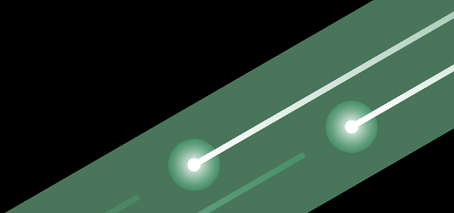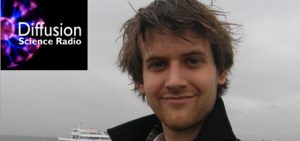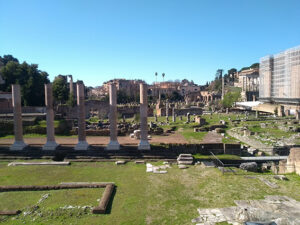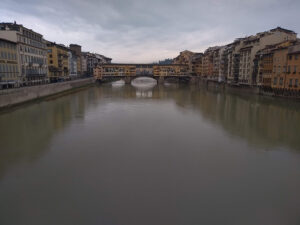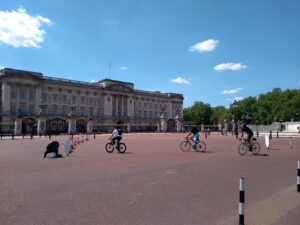—by Sam Bladwell, FLEET alum
I was a PhD student at UNSW at the time that FLEET was originally formed, so I was around right at the start, doing my PhD in theoretical condensed-matter physics (mostly, spin-orbit interactions in Hole systems). Then I moved onto a postdoctoral fellowship in FLEET and worked on a smattering of topics here and there. On the side, I did a bit of outreach work.
One particular thing I enjoyed about being in FLEET was the chance to chat with a really diverse range of experimentalists. If you are a theorist, hearing about the weird results people are getting in experiments is always a great way to get ideas.
I finished up at the end of 2019, having pretty much decided to call time on being an academic, but not sure what I might do instead.
In May 2020, while the world was locked down, I started working as a scientific editor at Nature Communications.
For example, I might read a paper and then reject it because it’s something that a Soviet researcher did in 1965 but called it a completely bizarre name in an unreadable paper so no one knows about it. The papers I don’t reject, I put out to review, and an angry reviewer tells the authors that the effect is actually called some bizarre name and was originally described in an unreadable paper by some soviet researchers from 1965.
After all of this, some papers get past review, and I provide editorial suggestions, such as “you realise that there are other words than mean ‘new’ aside from ‘novel’, right?” After the authors finally remove the word ‘novel’ from their paper, we send it off to be published.
Finally, we receive correspondences from authors, reviewers and very occasionally readers, where they complain about us publishing a paper which is clearly plagiarism of an unreadable paper on some weirdly named effect written by soviet researchers in 1965.
How exactly did I go from researcher to editor? It’s a bit of a story…
After I finished up my postdoc at FLEET, I wasn’t really sure what I wanted to do, but had budgeted to travel for a bit, and see where the winds took me. I set off overseas, and was travelling through Europe, venturing here and there.
This was in late 2019, early 2020. See where this is going? Things started to get a little …odd… in Europe at the end of February 2020…
(For that story, see Sam’s postcard from a pandemic.)
While in lockdown in London, I got a call from Springer Nature, to which my immediate response was, “Why are you calling me, I haven’t submitted any papers!”
In all the COVID excitement of the intervening two months, I’d forgotten submitting an application for an editorial position at Nature Communications.
Zoom interviews were followed by Zoom offers then by Zoom training then by Zoom staff meetings then by Zoom Christmas parties. At some stage, my position, initially temporary, became permanent. By May 2022, when I finally went to the office for the first time, I’d done two rounds in the ring with COVID, had three shots of vaccine, and somehow wound up working full time in London editing manuscripts on magnetism and spintronics.
So that’s how I now find myself an editor at Nature, reading papers, rejecting a few, sending others to review, and publishing the finished products.
A background in physics is definitely useful. Knowing enough physics to understand a manuscript makes a substantial difference about the reviewer you would send it to, what you might insist needs to be corrected.
I enjoy being able to look over, read about, and keep track of a much wider array of areas of physics than I could when I was a researcher. That said, I do miss the focus of doing research.
And I’ve developed new skills, mostly editing and writing. I read a lot of papers every week. As a result, I am now very familiar with what makes a paper readable and intelligible
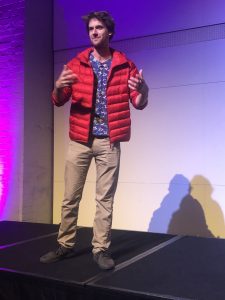
While a FLEET UNSW PhD candidate, Sam won the NSW Famelab semifinal and went on to the national finals in Perth
Q: How did you get into science? I initially wanted to be a mathematician. But the physics lessons were more entertaining, and the physics professors were less offended by some of the maths I did. Then in my first year, I got the chance to do some research in laboratory, and realised I hated lab work. So I decided to focus on theoretical physics.
In my third year I realised that I actually wanted to be a historian or a philosopher to I switched to a history and philosophy degree. After witnessing philosophers arguing about the same things they did 2000 years ago, I decided to switch back to physics, and did my honours in particle and nuclear physics.
After witnessing the Higgs boson be detected 50 years after Peter Higgs proposed it, I decided that nuclear and particle physics was a bit slow, so I switched to condensed matter physics.
Finally, I wound up really interested in spins and magnets, and the kind of research that gets done at FLEET.
At school, I’d studied as much maths as I was allowed, plus English, Physics, Modern History, and Visual Arts. Visual Arts was my best subject, so I decided to lean into my skills by becoming a physicist. Trust me, it makes sense.
I also did Chemistry until a few weeks before the HSC, but quit because we started working with some disgusting smelling chemical. I was never destined to work in a lab.
Q: Advice on balancing life / work / mental health Don’t balance them! Life and mental health come first. You will find something to do, and something that you enjoy, but only if you are in a space where you can enjoy things.
Q: Any comments on 2020-21 / lockdown? Do we have comment on it? Can we not just pretend that it never happened? That those two years we spent obsessively watching Bridgerton and singing sea shanties were but a dream. We might as well be two years back in time, for all the chance an anti-vaxxer will change their mind.
What would you say to yourself as a school student/PhD student/job hunter? DON’T PANIC. If you’ve made it this far, you’ve probably realised that my journey to this point was not remotely direct, or even expected. Your journey won’t be either, so don’t fret about things not working out as planned. There are some excellent opportunities at FLEET, and who knows where they will take you. All you have to do is enjoy the ride.
If nothing else, it makes for a good FLEET alumnus profile.

